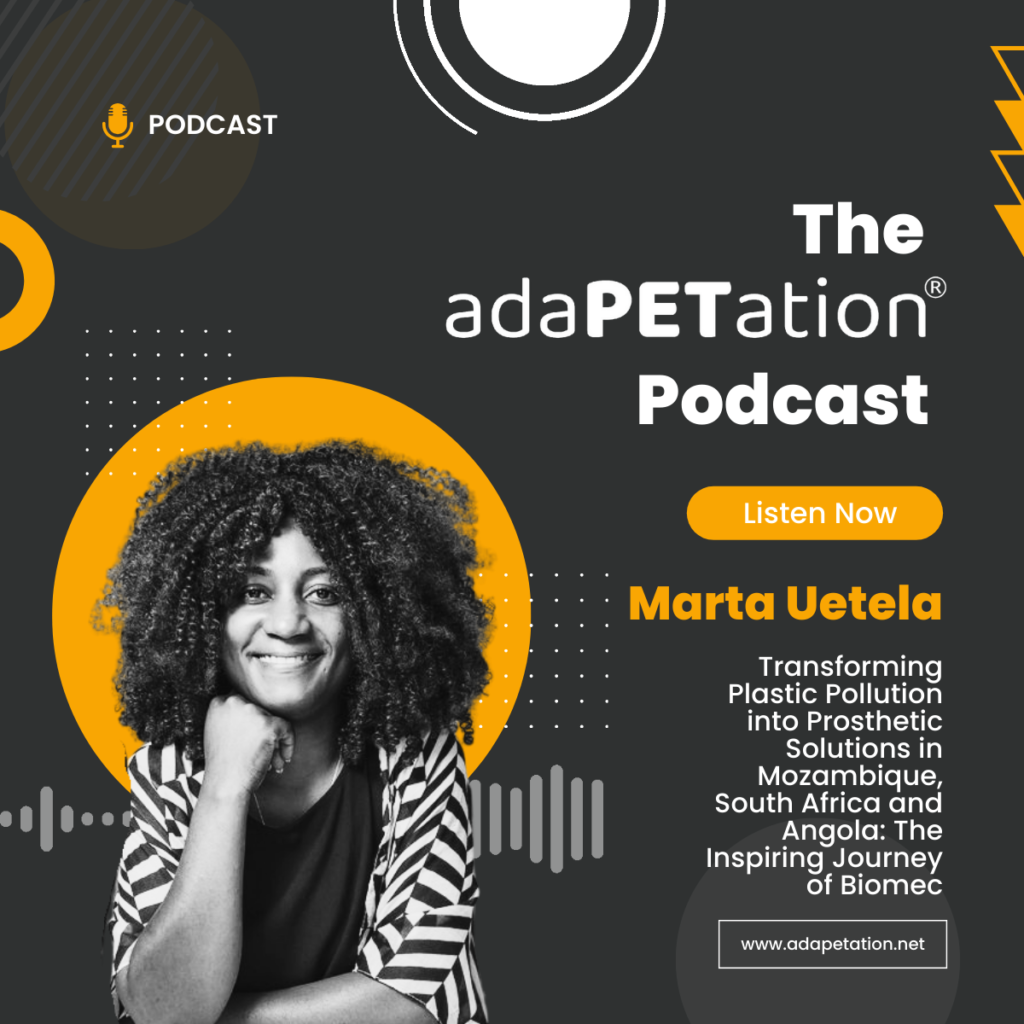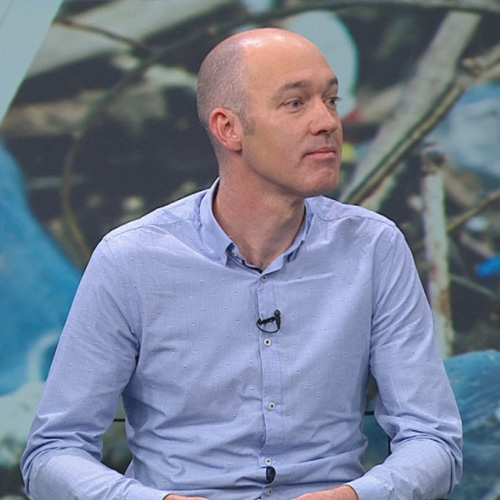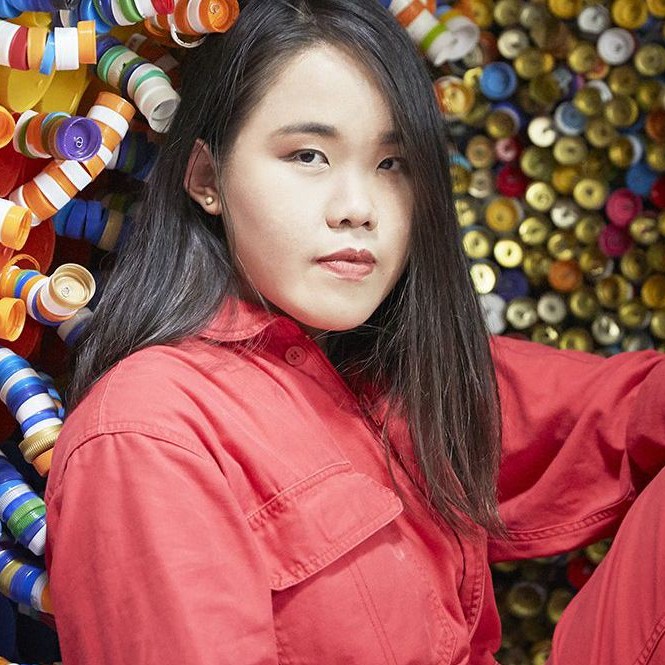
In an era where the environmental impact of plastic waste cannot be overstated, innovative solutions that address both ecological concerns and human needs are invaluable. Marta Uetela, a visionary entrepreneur, has embarked on a remarkable journey with her startup, Biomec, which stands at the intersection of environmental sustainability and healthcare.
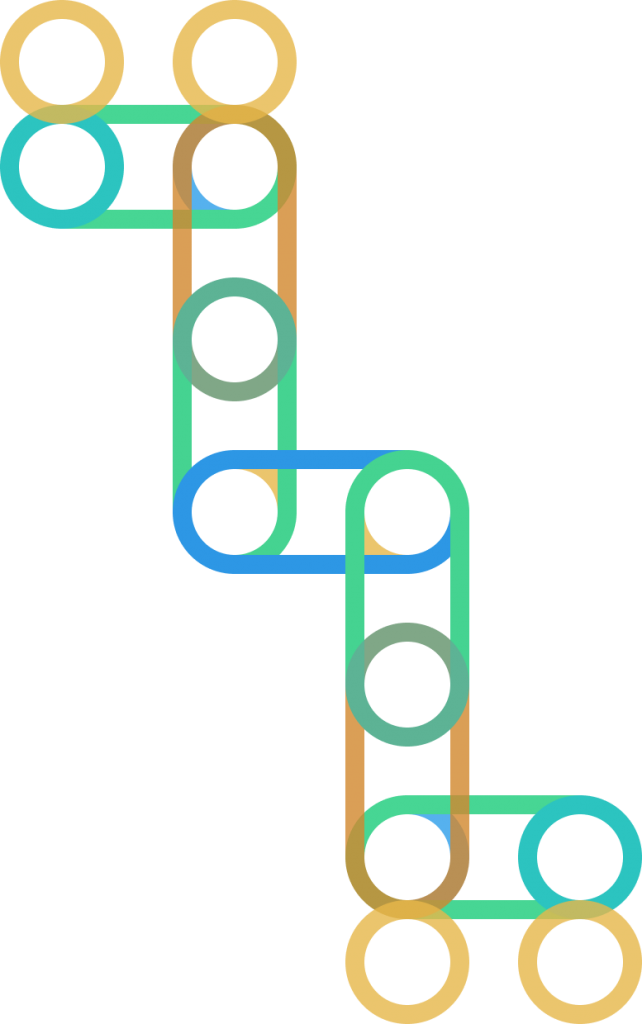
By converting discarded fishing nets and other plastic waste into prosthetic limbs, Biomec is not only tackling pollution but also providing essential mobility aids to those in need, particularly in countries with a history of conflict and landmine injuries.
In the latest installment of the adaPETation® Podcast we talk with her about Uetela’s inspirational journey. In the conversation we discuss:
The Genesis of Biomec
Biomec’s story began with a simple yet profound mission: to make a positive impact on the world by addressing the pressing issue of plastic pollution in the oceans. The initiative quickly evolved from community-driven plastic collection campaigns to a more structured approach involving partnerships with fishing companies. These collaborations aim to ensure that fishing nets, a significant source of marine pollution, find a new lease on life instead of contributing to the degradation of aquatic ecosystems.
A Dual Focus: Environmental and Social Impact
Uetela’s approach is multifaceted, focusing not only on environmental sustainability but also on social empowerment. By working with local communities, including fishermen, Biomec is closing the loop on plastic waste, transforming it into high-quality prosthetic limbs. This not only prevents the material from polluting the oceans but also addresses the acute need for affordable prosthetics in countries affected by landmines and conflict.
Challenges and Innovations
The journey of Biomec has not been without its challenges. Access to technology, particularly advanced 3D printers necessary for producing high-quality prosthetics, remains a significant hurdle. Moreover, navigating the research and regulatory landscapes to transform plastic waste into medical-grade materials has been an ongoing learning process for Uetela and her team.
Despite these obstacles, Biomec has made remarkable strides, producing over 700 prosthetic limbs for individuals in Mozambique, South Africa, and Angola. This achievement is a testament to the startup’s commitment to innovation, quality, and community engagement.
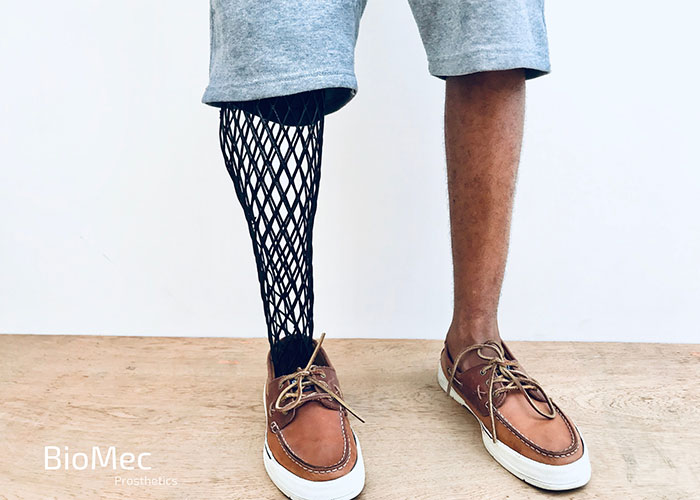
Collaboration and Future Aspirations
Recognizing the power of collaboration, Uetela is excited about the potential synergies with other innovators, such as the creators of Polyformer, a 3D printer designed to work with recycled plastic bottles. Such partnerships could further enhance Biomec’s capabilities, allowing for greater scalability and impact.
Looking ahead, Uetela envisions Biomec not just as a provider of prosthetic limbs but as a movement that redefines the value of waste. By demonstrating that recycled plastics can be transformed into life-changing products, Biomec aims to inspire a broader shift towards sustainability and innovation across industries.
A Source of Hope and Inspiration
Uetela’s work with Biomec serves as a powerful reminder of the potential for human ingenuity to address complex global challenges. By finding harmony between environmental sustainability and healthcare, Biomec is not just offering a second chance to individuals in need of prosthetics; it’s also giving plastic waste a new, valuable purpose. In doing so, Uetela and her team are paving the way for a more hopeful and sustainable future, proving that even the most daunting problems can be tackled with creativity, collaboration, and compassion.
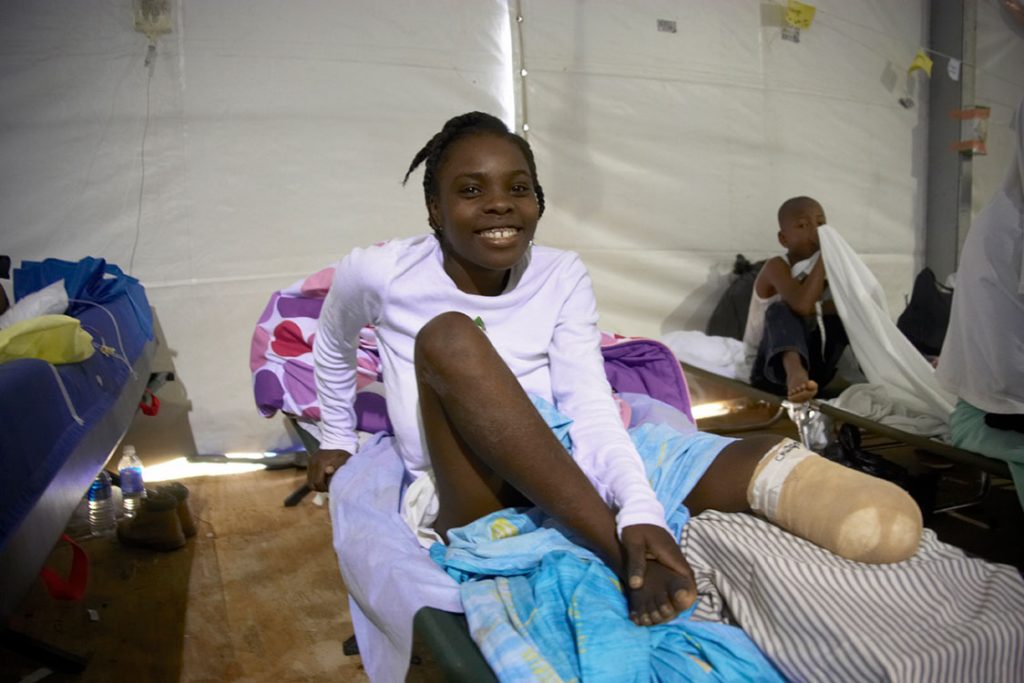
JOIN THE MOVEMENT
The future of plastics is being redefined, and you can be a part of it. Listen to the full podcast with Marta Uetela to delve deep into the world of Biomec and the message of hope it sends to the rest of the world. Your support can usher in a new era where plastic, once the problem, becomes an integral part of the solution.
Share it
THE HISTORY OF PLASTIC
Throughout the history of plastic, PET has been crucial in keeping food fresh with lightweight and durable packaging solutions that have helped reduce food waste for almost a century. Learn all about the invention of plastic and the important role it has played feeding people and saving the lives of humans and elephants in the adaPETation® timeline of the history of plastic.

